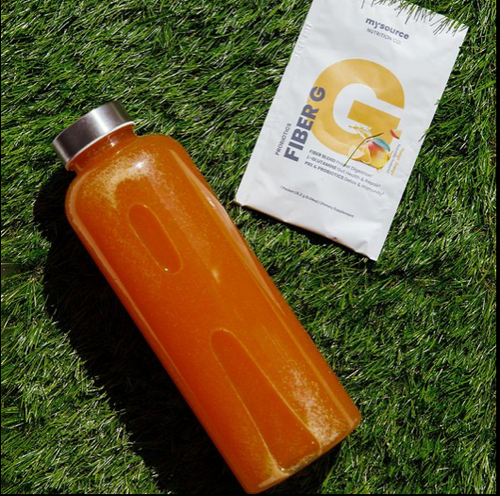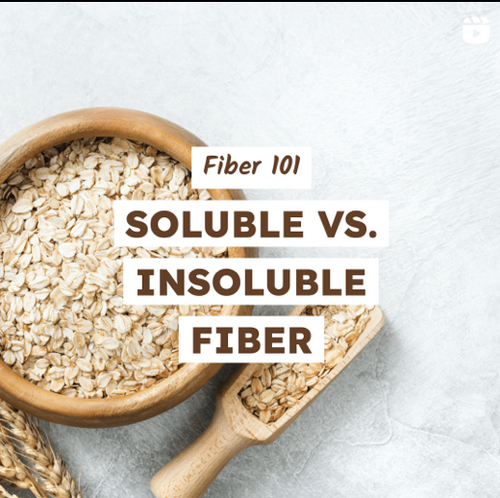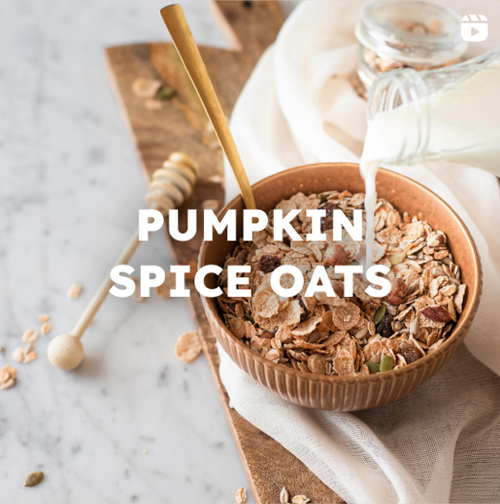Table of Contents
- What causes constipation in pregnancy?
- When does constipation usually start?
- How to relieve constipation during pregnancy?
- Other remedies for constipation in pregnancy
- What to prevent when experiencing constipation in pregnancy?
- Summary
What causes constipation in pregnancy?
- Hormonal changes: Changes in hormones in the beginning stages of pregnancy may cause digestion to slow down. This delay in digestion increases the amount of water that the colon absorbs from the stool, making it more difficult to pass.
- Prenatal Vitamins: Prenatals are typically high in Iron. Iron can cause constipation and hard, black stools. Make sure you are drinking plenty of water if you are taking iron supplements. You may need to switch to a different type of iron tablet, but it is important to talk to your health care provider first.
- Pressure from the Uterus: In later stages of pregnancy and as the uterus continues to grow, it can press on or even block parts of the digestive tract. This can lead to slowing of food passing through the intestine and result in constipation.
When does constipation in pregnancy usually start?
As mentioned above, the onset of constipation or other digestive related issues will vary from person to person. While some women will experience digestive distress in the beginning stages of pregnancy, others don’t notice any differences in bowel movements until the very end of pregnancy. Therefore, it is important to pay attention to your own body and symptoms and make changes to your regimen accordingly.
Below we listed natural ways to alleviate constipation, bloating and gas during pregnancy. Note: Every case is different and what might work for someone else may not necessarily work for you. However, don’t get discouraged. Trial and error is key when it comes to improving your digestion.

How to relieve constipation during pregnancy?
1. Increase your daily fiber intake
Fiber found in fruits and vegetables remains undigested by the digestive system and stays in the GI tract where it adds bulk to stools by drawing water into the intestines. The added bulk and water helps to soften the stool and keeps bowel movements regular. Without enough fiber in your diet, constipation is more likely to occur. To prevent this from happening, consider adding more high-fiber foods into your diet. Need a refresher on the best high-fiber foods? Check out our blog post Top 26 High Fiber Foods You Should Eat Everyday.
Another way to get more fiber into your diet is by adding a daily fiber supplement to your regimen. Many fiber supplements on the market are harsh and can lead to gas, irritation or even diarrhea. However, this particular fiber is safe, effective and tastes amazing.
Fiber G by My Source Nutrition is a great option to improve overall gut health and regularity. It is a daily fiber supplement containing plant-based pre-& probiotics as well as soluble & insoluble fiber. Ingredients that are essential for optimal gut health & smooth digestion. Note: All ingredients contained in Fiber G are safe to take during pregnancy or lactation. However, always consult with your doctor prior to taking this product.
One serving of Fiber G contains 7g the following Prebiotic Fiber Blend: Oat fiber, Apple Pectin Powder, Psyllium Husk, FOS from Chicory Root & Fibersol-2.*
2. Drink lots of warm water an liquids
When your body gets dehydrated, it will pull water from the intestines, thus contributing to constipation. The general recommendation for pregnant women is to drink a minimum of 10 (8 ounce) glasses of water a day. Also, adding warm liquids (teas, bone broth, lemon water) can help to sooth and relax the muscles in your digestive tract, easing up any tension or constipation you may be experiencing.
3. Add more daily activity and relaxation exercises
Studies have shown that exercising for at least 30 minutes a day helps to stimulate the digestive tract and promotes more regular bowel movements. Activities like walking or yoga are a great way to activate the parasympathetic nervous system and keep your digestion going.
4. Take enough Magnesium
Studies have shown that exercising for at least 30 minutes a day helps to stimulate the digestive tract and promotes more regular bowel movements. Activities like walking or yoga are a great way to activate the parasympathetic nervous system and keep your digestion going.

Other remedies for constipation in pregnancy
1. Talk to your doctor about potential uses of bulk-forming laxatives
Bulk-forming laxatives are not digested, but absorb liquid in the intestine and swell to form a soft, bulky stool. The bowel is then stimulated. Bulk forming agents are mildest of all laxatives and can be used for longer duration than others. However, use of these laxatives might cause excess gas, bloating or other digestive distress.
2. Reduce or eliminate the use of iron supplements
Iron is hard on the digestive tract. Constipation is the most common side effect, but iron supplements can also cause nausea, indigestion, gas and bloating. The cause of the constipation is the iron itself, not any added ingredient. If you have constipation from iron, one excellent solution is to ask your doctor for a liquid form of iron supplement, such as the brand Feosol. You can then experiment by gradually lowering your dose until you get to a level that does not cause you constipation.
What to prevent when experiencing constipation in pregnancy?
Typically, Laxative pills are not recommended for the treatment of constipation during pregnancy because they might stimulate uterine contractions, as well as, result in dehydration. Always talk to your doctor prior to adding any new supplements to your routine. The same applies for over-the-counter fiber supplements, laxatives and stool softeners.
Summary
While constipation and digestive distress during pregnancy can be very frustrating and super uncomfortable, keep in mind that there are ways to alleviate these issues. We recommend first looking into natural ways to help keep things moving and only opting for over-the counter supplements or laxatives if necessary. Again, every pregnancy is different and symptoms vary from person to person. Therefore, do not stress, do your research and apply some of the tips mentioned above to get your digestion back to regular.
Welcome to MySource Nutrition
We are happy to welcome you to our community. Say goodbye to occasional constipation, bloating, sugar cravings and other gut related issues with MySource's Fiber G.







